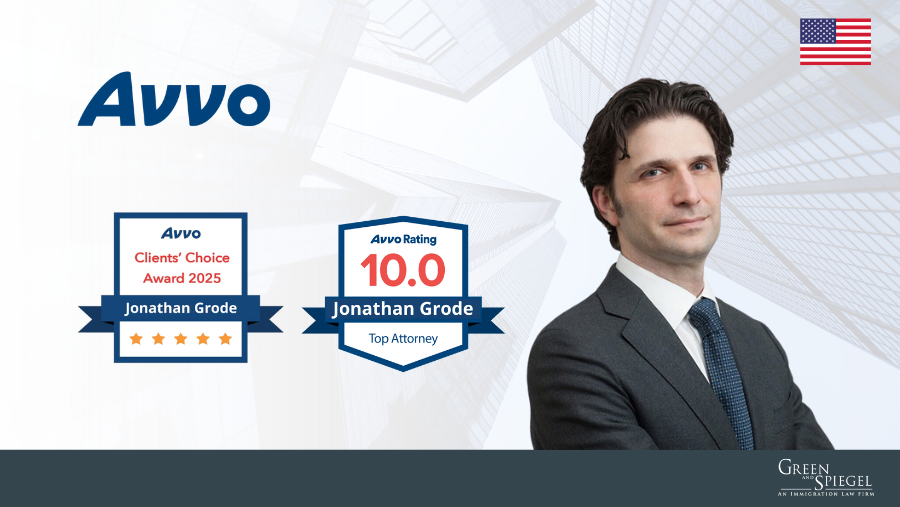The H1B Specialty Occupation visa classification has been among the most heavily used for many years. Qualified entities can enter a “lottery,” seeking to use one of the 65,000 regular H1B visas or the 20,000 advanced degree exempt visas the government issues each year. (For Fiscal Year 2023, over 483,000 applications were made for the 65,000 nonexempt visas.) If granted, these petitioning entities may receive a highly coveted visa for nonimmigrant workers from abroad. Given the substantial shortage of qualified workers, it is perhaps easy to see why the H1B program is a target for fraud schemes.
H1B fraud is an intermittent target of U.S. attorney’s offices (DOJ) and of U.S. Immigration and Customs Enforcement (ICE). Whether ICE or DOJ actively pursues these cases is driven by a variety of factors, many of which are political rather than practical. However, U.S. Citizenship and Immigration Services (USCIS) tends to actively track fraud trends and identify likely targets on an ongoing basis through Fraud Detection and National Security Directorate components at the USCIS Service Centers and Field Offices.
The fraud presents itself in a number of ways: In extreme cases, it amounts to indentured servitude in which the petitioning entity or person brings a foreign national to the United States under the pretext of a legitimate H1B qualifying job, to work in an entirely different capacity, paying a large portion of their wages back to the petitioner. A more common fraud pattern is implicated in the ongoing prosecution of Elangovan Punniakoti and Mary Christeena of Innovate Solutions Inc. of Santa Clara County, California (“Innovate Solutions”).
On March 31, 2022, Mr. Punniakoti and Ms. Christeena were charged with conspiracy to commit visa fraud and visa fraud for their company’s participation in the H1B visa program. It is alleged that they petitioned for H1B nonimmigrant workers to fill jobs which didn’t exist. Once in the U.S., these foreign nationals were sent to work for end client companies as Innovate Solutions employees, for which Innovate Solutions received $2.5 million in fees.
Done properly, bringing H1Bs to the U.S. to service IT clients through intermediaries is lawful and proper. Among the keys is that there must be pre-existing contracts that document the need for the workers. If the government can show that Innovative Solutions’ H1B petition supporting documents misrepresented those contracts and/or positions, Mr. Punniakoti and Ms. Christeena could face fines, penalties, and even jail.
As noted above, how aggressively the government pursues these cases depends on which entity is doing so (DOJ, ICE, or USCIS) and is influenced by political considerations. At a practical level, there is something of an immigration enforcement pendulum, with the government aggressively pursuing immigration fraud for a while and then backing off for a while, only to return. Backing off encourages fraud, which acts as a spur for more enforcement, and the pendulum swings quickly back the other way. (Compare, for example, this Guidepost piece by Bill Riley from October 2017, with the U.S. Department of Homeland Security’s 2021 Worksite Enforcement Strategy.
Ideally, companies would use the enforcement lulls to audit their approaches to recruiting, hiring, employing, and terminating foreign workers, making sure that their practices and policies are up to date and oriented to cost-effectively, efficiently, and effectively meeting organizational needs, within the four corners of U.S. laws and regulation. In practice, many companies which would benefit from such analysis and corrective actions are reactive and will not act until fear of enforcement forces their hands.
The allegations against Innovative Solutions have yet to be proven but it is perhaps fair and safe to say that Elangovan Punniakoti and Mary Christeena engaged in conduct which created an articulable H1B fraud case. If that was unwitting, an audit might have prevented this result. In many cases, unwitting violations of immigration laws can be dealt with far short of a DOJ prosecution. The right legal advice and assistance, obtained under the protection of attorney-client privilege, can provide reassurance that policies and procedures are well-formulated and acted upon. Errors can be identified and corrected before badge-toting agents seize evidence. Cleaning up paperwork, organizing documentation, and implementing self-audits can make working with the government smoother and lead to more reliable filing outcomes.
The Green and Spiegel compliance and enforcement practice follows such matters closely and we will continue to update our blog and provide E-Alerts to advise on cases which are worth following. We have the experience and capacity to serve client compliance interests well. If your company wants help with such matters, please contact our Corporate Compliance Practice. You can also call me at (484)645-4194.
DISCLAIMER: Please note, nothing we post here is legal advice, nor does reading anything we write or communicating with us on or through social media form an attorney/client relationship between us. Choosing an attorney is a serious matter and should not be based solely or primarily on advertising or any other public communication of an attorney or law firm.




